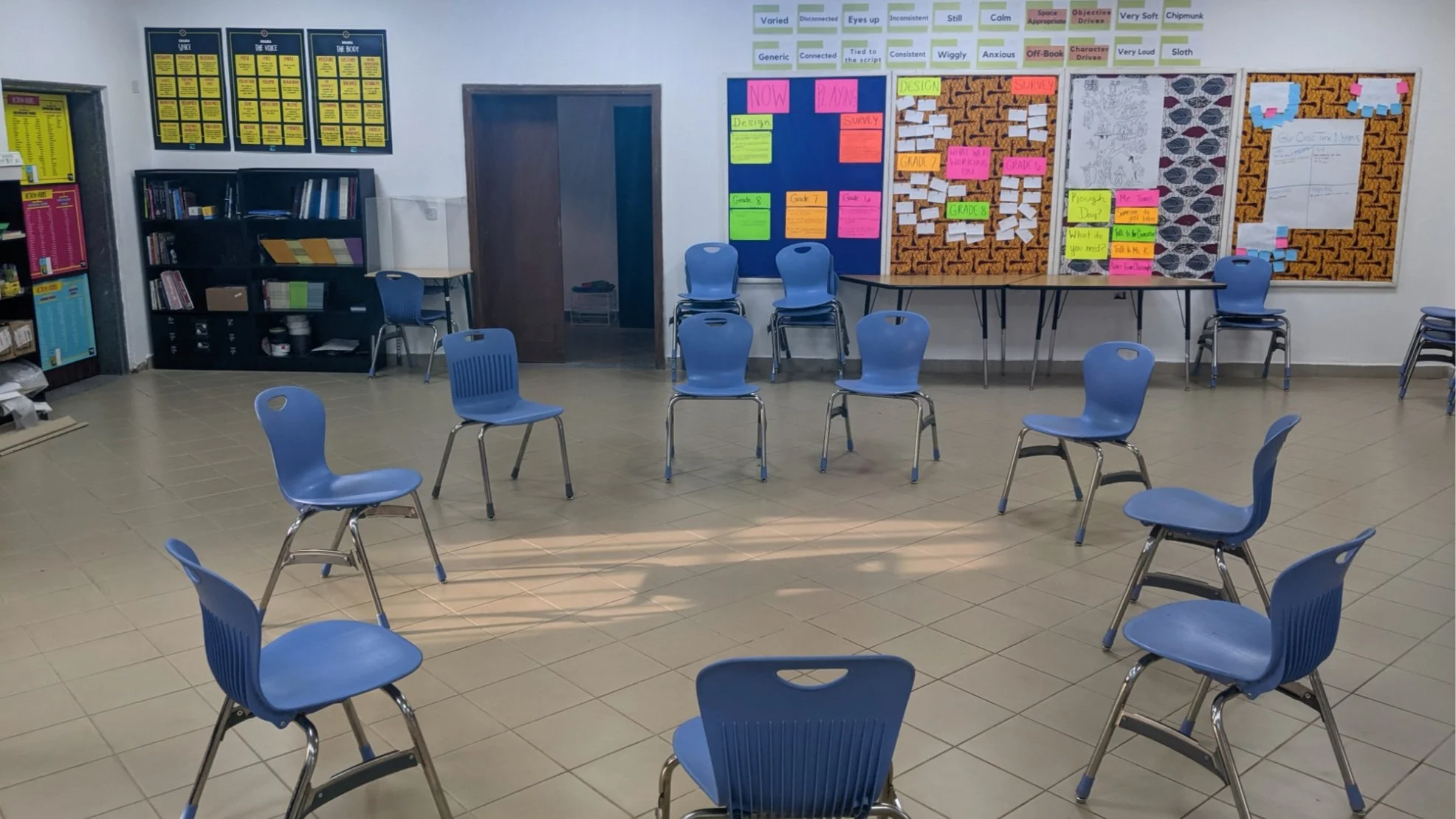Global Impacts: Abuja, Nigeria
Katherine Lewiston teaches grades 6-12 drama teacher at the American International School of Abuja, Nigeria. She sat down with the Modern Classrooms Project to share her experience in her international Modern Classroom.
Q: How did you discover the Modern Classrooms Project (MCP)?
I first heard about MCP through a podcast episode and blog post on Cult of Pedagogy. I'm a big fan of Jennifer Gonzalez's work and I trust the quality of her material, so I listened in and was really intrigued by the ideas and action items that Kareem was laying out.
Q: What first stood out to you / attracted you to MCP?
I took on translating my curriculum to the MCP model in the 2020-2021 school year when my classes were online and I was in a completely different time zone than most of my students, so the blended learning portion of the model was immediately appealing because it was something I could do right away to improve the quality of my instruction over distance learning!
Q: As you started implementing the model, what impact did you notice it having on your own practice as a teacher?
As I became more adept at using the MCP model throughout the year, I found that it helped me to hone in on EXACTLY what I wanted my students to understand and be able to apply, in a way that UbD or backward design alone did not. Layering the MCP model on top of all the great pedagogical approaches I already knew was like applying a fresh lens to my work!
Q: As you started implementing the model, what impact did you notice it having on your students?
Purely having to do with the model, my students noticed right away that they could tell where they were in their learning process more clearly than before because of the pacing tracker and the sequence of lessons. This was empowering for many of my students. Also, they were able to more immediately implement feedback from me because I was giving it to them more frequently. My students and I now have much more interesting conversations about the content itself due to the MCP model.
On a broader note, I've always asked for feedback from my students but sometimes got stuck feeling like I was just paying lip service to the idea because the structure in which we learned didn't really shift that much. Implementing MCP in the 20-21 school year was a really vulnerable experience for me because it truly was an experiment - EVERYTHING was an experiment that school year - and I was totally transparent with my students about that. We walked through the model together, my students gave me feedback constantly about what was working and what wasn't, and by the end of the year, our version of the model was working for just about everyone. Because of that, my students learned they can trust me to always strive to do what's right for them, even if it means changing something or walking something back!
Q: As you started implementing the model, what impact did you notice it having on your peers and/or wider school community?
As the 21-22 school year begins and I enter into Year 2 of implementing the model, I've had lots of great "shop talk" with my husband, who teaches right next door to me in a Design Technology classroom. He's started implementing parts of the model in his classroom and his students love it! Not only that, the students in his class who pioneered the model with me recognize the structure and are so appreciative of the similarities of assessment between different classes and content areas.
Q: Is there anything else you would like to share about MCP’s impact?
MCP was a lifesaver for me in a pandemic school year like none other, but its greatest impact is that I now feel confident this year that, no matter what happens -- in-person, hybrid, or fully distanced instruction -- I can provide high-quality instruction and connection for my students. My teaching palette has become so much richer as a result of this teaching model.





